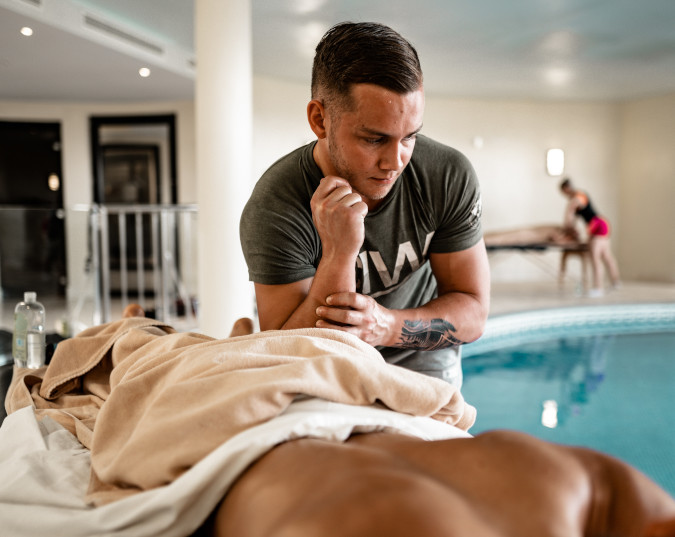
They plan and implement programs of physiotherapy including therapeutic exercise, manipulations, massage, education, the use of electro-therapeutic and other mechanical equipment and hydrotherapy as well as evaluate the effectiveness of treatment plans and modify accordingly.
Physiotherapists provide advice on exercise and strategies to implement at home to enhance and or maintain treatment. They communicate with referring physician and other health care professionals regarding patients’ problems, needs and progress.
Physiotherapists may also conduct research in physiotherapy and coordinate clinical trials. They may provide consulting or education services.
Average Hourly
$39.39
Range Hourly
$27.18 – $52.36
Average Yearly
$76,811
Range Yearly
$53,009 – $102,102
Physiotherapists (3142)
Clinical physical therapist; Clinical physiotherapist; Consultant physical therapist; Consultant physiotherapist; Physical rehabilitation therapist; Physical therapist; Physical therapy clinical co-ordinator; Physical therapy clinical specialist; Physical therapy supervisor; Physiotherapist; Physiotherapy clinical co-ordinator; Physiotherapy supervisor; Registered physical therapist; Registered physiotherapist; Research physical therapist; Research physiotherapist
A university degree in physiotherapy and a period of supervised practical training are required.
Physical rehabilitation therapists, who are only found in Quebec, require completion of a 3 year college program
Average hourly |
Range hourly |
Average yearly |
Range yearly |
$39.39 |
$27.18 - $52.36 |
$76,811 |
$53,009 - $102,102 |
High
Employment outlook is mostly good across provinces. More information is available here.
Progression to management positions, such as director of physiotherapy, is possible through experience and additional training.
A minimum of 1025 hours supervised clinical education in total, with
A minimum of 100 hours in musculoskeletal, 100 hours in neurological and 40 hours in cardiorespiratory condition
Having health-related undergraduate education a master’s in Physiotherapy is usually required. Some examples of master’s program:
MSc. in Physical Therapy at University of Alberta
MSc Physiotherapy at Dalhousie University
Master of Health Sciences Physiotherapy at University of Ottawa
Excellent communication skills; empathetic; ability to work independently, Physical and mental stamina; Critical thinking skills,
Physiotherapists may focus their practice in particular clinical areas such as neurology, oncology, rheumatology, orthopedics, obstetrics, pediatrics, geriatrics, in the treatment of patients with cardiovascular and cardiopulmonary disorders, burns or sports injuries or in the field of ergonomics
In Quebec, physical rehabilitation therapists cannot provide a diagnosis.
If an IMG has previous experience and degree in Physiotherapy from back home they can try Graduate Certificate in Bridging to Canadian Physical Therapy Practice at University of Alberta. Before that one need to get their credentials evaluated from here.
Otherwise, one can directly enter into a MSc. program available.
The entry to master’s program is very competitive. To compensate that one can start with a diploma in Physiotherapy Assistant program.
After completing the master’s and supervised training, a licence or registration with a regulatory body is required in all provinces and territories.
Completion of a Physiotherapy Competency Examination (PCE) is required in all provinces and territories. The Canadian Alliance of Physiotherapy Regulators (CAPR) administers exams for competency on behalf of most of the provincial and territorial regulators. Find your provincial regulators from here.